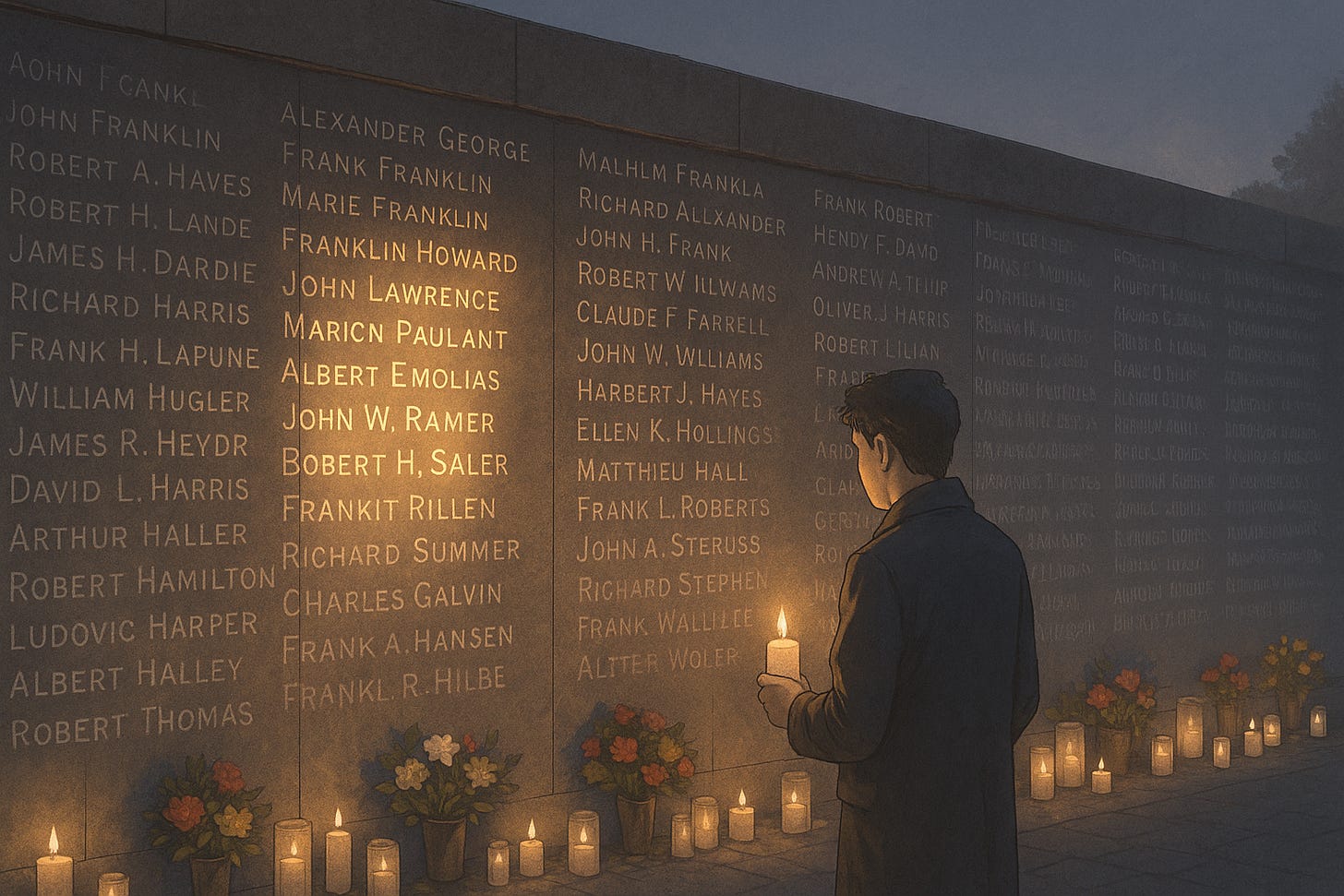Who Decides Which Deaths Matter?
Not all death is treated equally, and not all lives are allowed to be mourned.
Some mornings, the news feels like a tally.
One death given headlines and hashtags. Another barely mentioned, if at all.
A single loss sends shockwaves through the culture, while others, sometimes even in the same town, the same day, go quiet beneath the weight of indifference.
And I always find myself asking:
Who decided this?
Who decides which deaths get held, honored, politicized, prayed over… and which ones get tucked into silence?
Because it isn’t random. And it sure as hell isn’t fair.
I’m not here to argue over who deserved what. I’m not interested in martyrdom or morals or how many followers someone had when they died.
I’m asking a deeper question.
What does it mean to live in a culture where some deaths get paraded and others are barely permitted to exist?
This has bothered me for a long time.
The way we rush to collectively eulogize certain people, while others, children, teachers, unhoused elders, victims of violence, people of color, LGBQTIA+, chronically ill folks who slip away quietly, are barely acknowledged. Not even given a name.
Sometimes, a single high-profile death overshadows dozens of others happening the same day.
One life becomes a headline. Another becomes a footnote.
Both are gone. One gets mourned. The other, erased.
Of course we can’t grieve everyone. I know that.
But this is about something else.
This is about whose death we’re told should matter to us, and how deeply we internalize those cues.
It’s about the way tragedy gets politicized, commodified, or ignored, depending on who died, how they died, and what story their death is convenient for.
It’s about the invisibility that cloaks certain bodies in life… and follows them into death.
The thing is, every death echoes somewhere.
Even the quiet ones. Especially the quiet ones.
That teenager whose obituary never made the news? Someone is still screaming into a pillow every night.
That elder who died in a care facility without family nearby? Someone still lights a candle for them.
That child whose name you never heard because the media moved on too fast?
They mattered. Even if we didn’t look long enough to see them.
I’ve sat with too many deaths that didn’t come with flowers or fanfare.
No viral montage. No public vigil.
Just the raw, private ache of someone who loved them.
And I’ve learned this:
Death doesn’t need permission to matter.
But mourning?
Mourning requires space.
Mourning asks for a witness.
And too often, society refuses to grant that, unless the death is clean, comfortable, or convenient.
If this is stirring something in you—come sit with me.
This is part of my ongoing series on death, dying, and the uncomfortable truths most people avoid. Subscribe to keep walking this path with me.
I don’t have answers. Only questions.
Why do some deaths trigger national pause while others are brushed off before the next headline?
Why are some lives eulogized like saints while others are dissected, dismissed, or completely ignored?
Why do we mourn collectively for the people we’ve already decided are worthy and leave the rest to disappear quietly?
It’s not just media bias. It’s not just politics. It’s a cultural illness.
One that treats grief like a popularity contest and death like a branding opportunity.
All lives end.
But not all lives are granted the dignity of being mourned.
And that should unsettle us.
Because the way we treat the dead says everything about how we value the living.
Tonight, light a candle for someone whose name you don’t know.
Love today,
Heather 🌸


